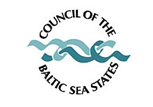Name of Resource | Guidance on policy / legislation implementation |
Type | Guidance on policy / legislation implementation |
Country / jurisdiction | Baltic Sea States region |
Organization | Council of the Baltic Sea States |
Initiative launch date | June 2014 |
Description | The aim of the guidelines is to address and tackle the different forms of exploitation and trafficking of migrant workers in the Baltic Sea region that were identified as problematic in the joint ADSTRINGO research report “Exploitation of Migrant Workers in Finland, Sweden, Estonia and Lithuania: Uncovering the Links between Recruitment, Irregular Employment Practices and Labour Trafficking”. The guidelines provide action-oriented recommendations and practical guidance to enhance prevention of trafficking for forced labour, especially through addressing the specific mechanisms that foster abusive and exploitative recruitment and employment of migrant workers in the Baltic Sea region. More specifically, they intend to contribute to: Promoting decent work conditions and protecting fundamental rights at work; Strengthening enforcement of existing labour standards, especially in sectors prone to exploitation and employing migrant labour; Fostering a level playing field for ethical recruiters and employers; Promoting strategic partnerships among public authorities, businesses, trade unions and NGOs in the prevention of abuse and exploitation at national, regional and international level. |
Availability | ENG: http://www.cbss.org/wp-content/uploads/2012/11/ADSTRINGO-Guidelines.pdf |
.
Name of Resource | 2. Guidelines for Municipalities - Stepping Up Local Action Against Human Trafficking |
Type | Guidance on policy / legislation implementation |
Country / jurisdiction | Baltic Sea States region |
Organization | Baltic Sea States region |
Initiative launch date | December 2015 |
Description | The general aim of the guidelines is to provide local actors with the knowledge and right tools to strengthen their role in the work against human trafficking and increase the effectiveness of the anti-trafficking actions by ensuring proper and timely victim identification, adequate and sustainable assistance and protection. The specific goals of the guidelines are to: Promote victims’ rights; Improve awareness of human trafficking among local actors; Highlight some of the promising practices that have been developed in the region and beyond where municipalities and/or local authorities play a prominent role in addressing trafficking and protecting victims; Involve local actors in combating human trafficking at the local level by addressing common challenges and providing specific action points to overcome the problems and to improve the counter trafficking measures. |
Availability | ENG: http://www.cbss.org/wp-content/uploads/2016/03/Guidelines-for-Municipalities-ENG.pdf |
